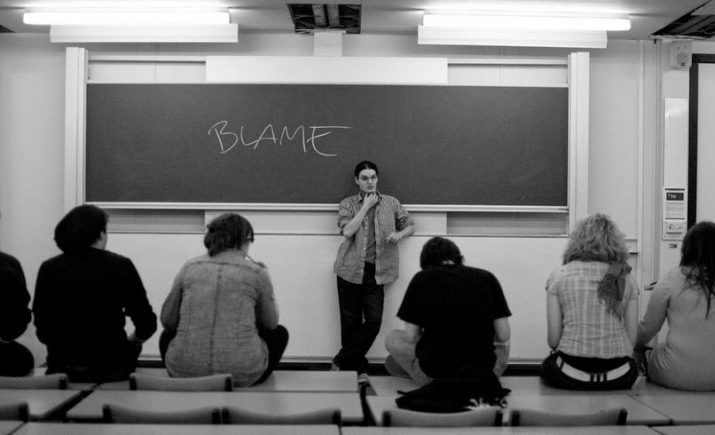If you were raised in a family with other siblings chances are you have played the blame game a time or two. In fact, more than we all would care to admit, when confronted by a parent with the question, “Who did this?” we quickly replied “Not me.”
As I have raised my children past the age of running around the house like a tornado, I have had my share of conversations about this mysterious person, “Not Me.”
It is no wonder once we grow up we still have a tendency to shift the blame to a fictitious character.
The major difference is as adults the stakes of our behavior are significantly higher. We truly are a product of our environment, and if we are not aware, we will miss the same lessons we did as adolescents. Before we can really trace the impact of the blame game, let’s go back to its origin and track the results.
When we were young, we had no idea we were shaping an internal mold that would follow us into our futures. We thought we were simply living in the moment. How wrong we were. Our actions are seeds that are planted in hopes of a future harvest. So when things are springing up, it should be no surprise the results we receive. A seed has a program in its DNA to reproduce after its own kind. So when we plant those “blame game” seeds, they just keep growing back into our lives.
Breaking the cycle of blame can be tough, so here are a few pointers we all can use in defeating it:
(1) Own it: Taking responsibility is the first step that opens the door of change. You see, nothing happens until we own our issues and quit pawning them off on others. Every one of us has a sob story we could tell or some reason we feel we didn’t get as far as we should have. But the real deal is it all rests upon us. And the sooner we grow up and own it, the sooner we can begin the process of healing.
(2) Speak it: Once our mouths are engaged in the process our thoughts can now manifest as actions. We don’t just act, there is an internal decision made first. Then we must add affirming words that are speaking in the direction we want to go. This is a critical point because as long as we let things rattle around in our heads, we are missing a vital link to achieving wholeness. Words are the currency of change.
(3) Move it: We must get some distance between us and our excuses. This means moving into a better mindset, a better environment and better influences. The old adage says; Birds of a feather flock together. In simple terms, we hang with those who influence our behavior. It’s just a plain fact, successful people have one thing in common, they connect to other successful people.
I will never forget the afternoon discussion with my youngest son about crayon markings in his room. Especially because he was the only child home the afternoon they appeared. But true to form, when I asked who did it, he exclaimed “Not me!” The consequences were minimal that day; nothing a little soap and water couldn’t fix. But as we grow, so do the outcomes. Let’s all use these tips for overcoming blame to make our lives simpler.
